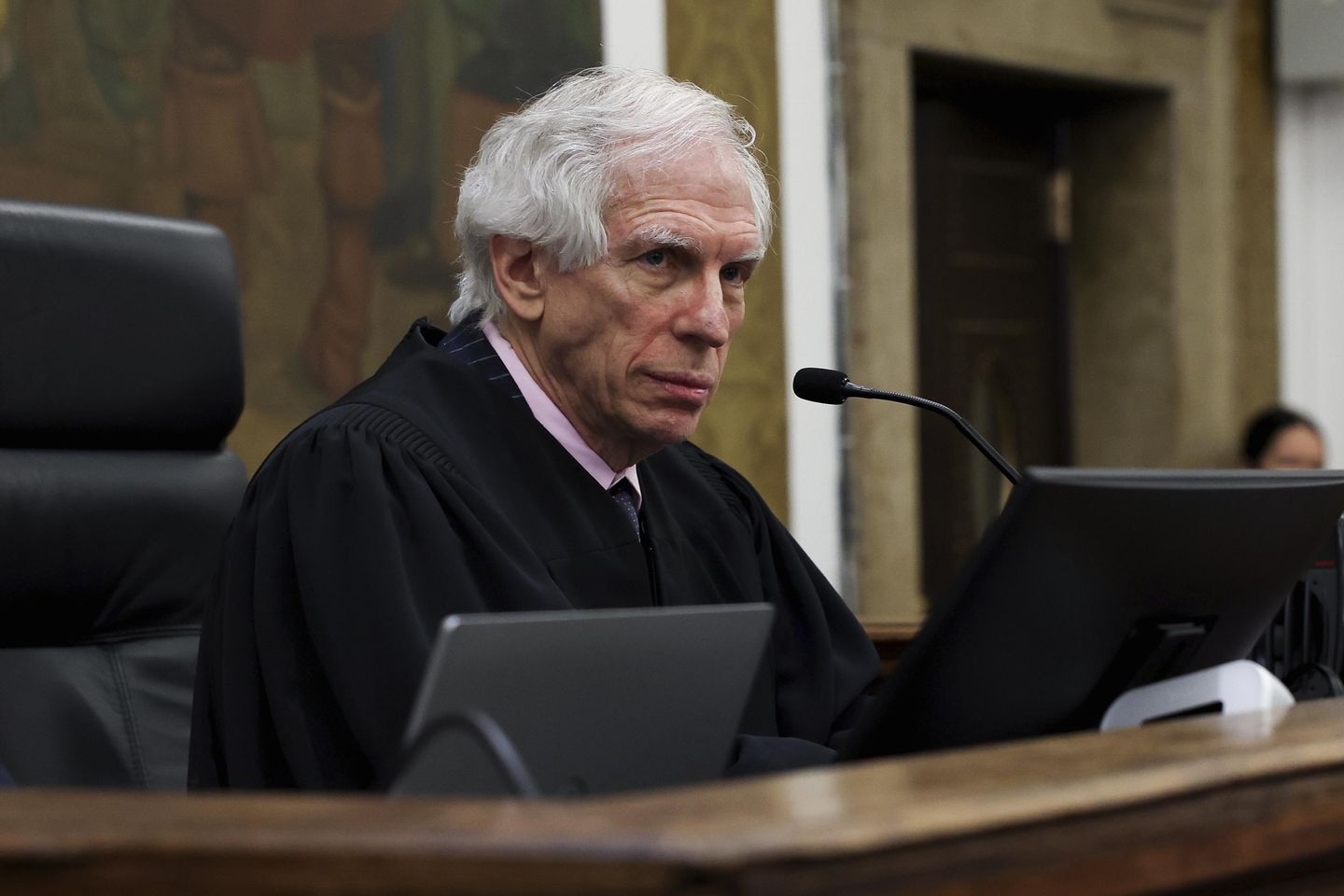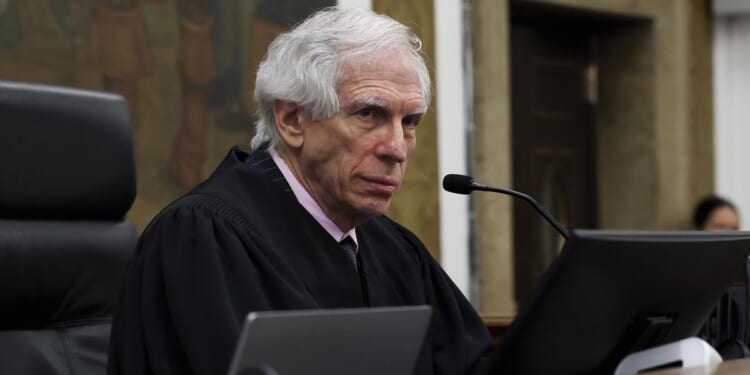
A New York judge is sternly defending his decision to evaluate whether a key witness lied in testimony during a civil trial on claims former President Donald Trump and his real estate company submitted false statements to lenders.
Judge Arthur Engoron also rebuked attorneys for questioning his decision to cite a New York Times article about potential plea talks between prosecutors and the witness, former Trump Organization Chief Financial Officer Allen Weisselberg. One Trump lawyer called his reliance on a news article “inappropriate and troubling.”
“Arguing against judicial notice is attacking a straw person, as I have not taken, do not plan to take, and did not suggest or hint that I would take judicial notice of the subject New York Times article or the contents thereof,” the judge wrote Thursday in a letter posted in the court docket.
“However, if, tomorrow, Mr. Weisselberg publicly confesses to having committed perjury about a significant matter in the case before me, or if he pleads guilty to such perjury at any time before I issue my final decision, I will research and consider what the law allows,” the judge wrote. “I take seriously my obligation to find the facts and determine the truth.”
Attorneys are waiting for Judge Engoron to deliver a blockbuster ruling on whether Mr. Trump submitted false financial statements to gain favorable terms on loans and insurance.
New York Attorney General Letitia James said the Trump Organization did this for years and should pay $370 million. She also wants to bar the Trump family from doing business in New York.
Mr. Trump says he followed normal real estate practices and that banks were happy to do business with him because they were repaid in full and made money on the loans.
The former president criticized Judge Engoron throughout the multiweek trial, prompting a gag order and frequent rebukes from the court.
Those rebukes continued in the Thursday letter scolding attorneys for their derision over the Weisselberg delay.
“You and your co-counsel have been questioning my impartiality since the early days of this case, presumably because I sometimes rule against your clients,” the judge wrote in the letter addressed to lawyers for both sides. “That whole approach is getting old, I am not reopening the case, but if someone pleads guilty to committing perjury in a case over which I am presiding, I want to know about it.”
The judge was expected to decide the case by the end of January. The Weisselberg matter appears to be the main sticking point as the ruling slips into mid-February.
During the weekslong trial, Mr. Weisselberg attempted to explain at the trial why Mr. Trump’s Fifth Avenue apartment was listed on statements of financial condition as 30,000 square feet when it was less than 11,000 square feet.
“It was almost de minimis relative to his net worth, so I didn’t really focus on it,” Mr. Weisselberg testified. “I never even thought about the apartment.”
Forbes magazine, however, said Mr. Weisselberg had tried to convince the magazine that the apartment was as big as the financial statements stated, indicating he did think about the matter.
Attorneys for Ms. James said they do not think the perjury deliberations should hold up a ruling in the civil case against Mr. Trump.












